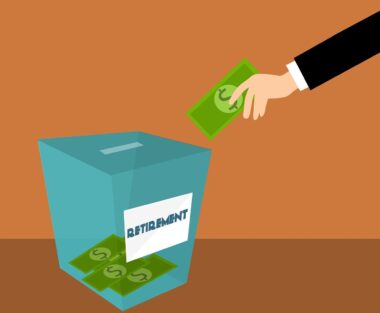Building an Emergency Fund to Avoid Debt in Retirement
As you approach retirement, managing finances becomes crucial, especially avoiding pitfalls such as debt accumulation. An emergency fund provides financial security, ensuring you can handle unforeseen expenses without resorting to credit. This buffer is essential; studies show that unplanned expenses frequently arise during retirement. Preparing for potential emergencies means you can maintain your lifestyle without financial strain. The standard recommendation is to save three to six months’ worth of living expenses. This base allows retirees to tap into savings without worrying about debt expansion. Building such a fund entails prioritizing savings and cutting unnecessary expenses. Consider diversifying income sources to enhance savings capability. For instance, look into part-time work or consultancy roles that can supplement retirement income, allowing more substantial contributions to emergency savings. Additionally, keep your emergency fund in a liquid account to access funds immediately when necessary. This measure provides peace of mind, reinforcing financial stability throughout retirement. Remember, a well-managed emergency fund contributes to a stress-free retirement experience. As you prepare for retirement, making informed choices about your finances will significantly enhance your ability to enjoy this new chapter of life.
Staying out of debt during retirement hinges on proper planning and preparation. A common mistake is to solely rely on pensions or social security benefits, which in today’s economy may not suffice for covering all expenses. The gap between social security and actual living costs necessitates additional income streams. Establish an emergency fund as a priority, particularly if you have limited resources. This fund mitigates risks associated with unexpected medical bills or home repairs. First, calculate living expenses accurately, including housing, healthcare, and daily essentials, then assess how much you need in savings. Create a focused budget to identify areas for expenditure reduction. By repurposing savings from various categories, you can bolster retirement accounts. For instance, start by cutting leisure activities and utilizing free community resources. After establishing a budget, consistently allocate funds toward your emergency savings. This approach not only improves financial health but also prepares you for economic surprises. The aim is to ensure that you can address emergencies without incurring high-interest debt. Lastly, regularly reviewing your savings plan can provide clarity and inform adjustments that might be necessary over time.
Investing in an emergency fund boosts not only financial health but contributions to peace of mind. Uncertainty often accompanies retirement, and unexpected costs can exacerbate anxiety about finances. Establishing a solid emergency fund empowers you to face life’s unpredictabilities confidently. Savings accounts differing in interest rates can impact your funds, so shop around for the best options. Look for high-yield savings accounts or certificates of deposit (CDs) that provide competitive rates while keeping your funds accessible. Furthermore, consider relocating to areas with a lower cost of living to boost savings. Explore options such as downsizing and selling unused assets to supplement your fund. Alternatively, invest in low-risk portfolios to enhance the earning potential of your principal. When you have a comprehensive emergency fund established, you can avoid drawing on retirement income when emergencies occur. Additionally, ensuring that family members understand your financial goals can prevent unwanted stress during emergencies. By discussing these matters openly, families can work together to support each other through costly times. Ultimately, a strong emergency fund lays the groundwork for a smoother retirement experience, free from the worry of unforeseen debt accumulation.
The Importance of Regular Contributions
Consistent contributions to your emergency fund can significantly reduce reliance on credit during retirement years. Regardless of your current savings level, committing a specific amount monthly will facilitate gradual growth and lessen future anxiety about debt. Automating contributions can simplify this process; select a set percentage of your retirement income for direct deposit into your funds. This approach ensures savings remain untouched unless absolutely necessary. If an unexpected cost arises, the fund enables you to tackle the expense without negatively impacting your retirement lifestyle. Evaluate potential costs regularly; adjustments may be needed based on your needs and economic situation. For example, assess healthcare needs that may change as you age. This foresight can prevent sudden financial strain. Additionally, consider reevaluating insurance policies to ensure they meet your current circumstances. Taking proactive steps can lead to improved financial outcomes when faced with emergencies. Set clear goals for how much you genuinely need in your fund, adapting as your situation changes. Keeping an eye on expenses allows you to reduce waste. More importantly, ensure your budget accommodates growth in savings over time. This protects your retirement years from unintended financial burdens.
Retirement can also introduce additional unexpected expenses, thus enhancing the necessity of a robust emergency fund. Medical expenses often increase with age, and having savings can make managing these bills easier. The costs can arise quickly, from emergencies to chronic illness management. Insurance may cover some expenses, but gaps often remain, necessitating personal funding. Establishing an emergency fund that takes these potential costs into account is crucial. This fund acts as a safeguard against the stress associated with financial burdens. Take the time to understand your benefits thoroughly, assisting in accurate fund calculations. Create a strategy addressing how much should be set aside for possible medical costs and unforeseen home repairs. Regularly revisiting these estimates enables updates to cater to changing circumstances. Moreover, consider utilizing health savings accounts (HSAs) for extra protection against high medical costs. They offer tax advantages and a way to save specifically for healthcare expenses during retirement. By incorporating these considerations into your fund strategy, you can rest assured knowing your financial future remains secure, even in the face of unforeseen expenses. The ultimate goal should be financial independence and peace of mind.
Integration of a comprehensive financial strategy combined with a well-established emergency fund can enable a more enjoyable retirement. Properly managed finances not only alleviate stress but can empower you to embrace this significant life stage. To enjoy travel opportunities or pursue hobbies without strain, ensure personal finances accommodate a comfortable lifestyle. Your financial strategy focusing on sustaining a sufficient income, minimizing debt, and maximizing contributions to your emergency fund can provide clarity. Explore various investment options that complement your emergency fund without compromising its liquidity. Successful investments rely on thorough research and understanding risk tolerance. Additionally, educating yourself about market conditions helps in making informed decisions on investments. Establish a financial check-up routine, ensuring your finances adapt as your situation shifts. Regular reviews of your emergency fund and overall retirement strategy maintain financial health. This diligence also assists in adjusting savings calculations based on real-life financial situations. Moreover, remain open to consulting professionals for tailored advice. Managing personal finances may sometimes require external insights. A financial advisor can assist in refining your retirement planning initiatives, ensuring that your resources are utilized effectively while safeguarding your quality of living.
Conclusion
Cultivating an adequate emergency fund forms the backbone of financial health during retirement. Without such a fund, many retirees may find themselves succumbing to debt from unexpected situations that arise regularly. One cannot underestimate the importance of preparing for the unpredictable nature of life. With a solid emergency fund, specific strategies ready, and an established savings routine, securing financial longevity becomes a manageable goal. Always remember, planning for retirement extends beyond just day-to-day living expenses; it embraces the concept of safety and security in the face of uncertainties. Encouragingly, retirees can enjoy the rewards of years of hard work without the burden of debt overshadowing their experiences. By controlling expenses, actively contributing to emergency savings, and continuously revisiting investment strategies, a secure and fulfilling retirement is achievable. Supporting these efforts, it becomes critical to focus on improving financial literacy and engaging the family in the financial planning process. Thus, not only granting independence but also reinforcing family bonds through shared goals and aspirations. In conclusion, building an emergency fund is a proactive measure that cultivates peace, security, and comfort in retirement years ahead.
This proactive endeavor enhances financial stability significantly and prepares seniors for realistic possibilities. Striving toward these financial targets while embracing valuable resources ensures a sense of confidence during retirement. Beyond achieving peace of mind, a robust financial strategy creates lasting legacies that empower future generations as well.








